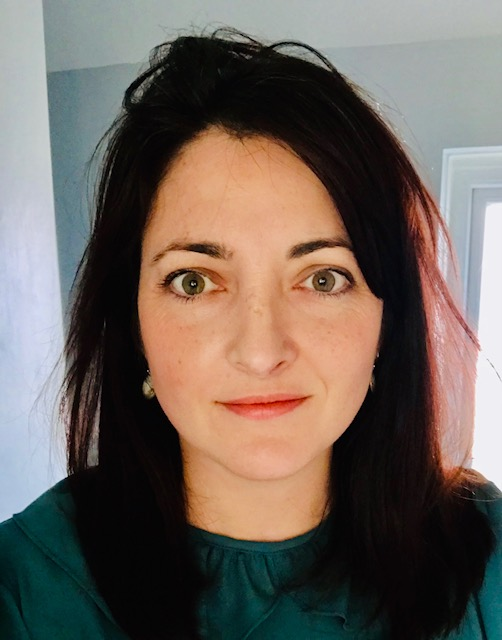My story: Living with GSM
In this article, Emily tells us what it’s like to live with GSM (genitourinary syndrome of menopause) – especially as a young woman – and she shares her experience to help others who may not be getting help for this ‘embarrassing’ condition.
Genitourinary syndrome of menopause (GSM), or ‘vaginal dryness’ sounds like a mild problem which might strike in your 60’s or 70’s (once the hot flushes have stopped), and causing a bit of bother in the bedroom. Wrong. GSM is a condition that affects up to 70% of women at some time, peri- or postmenopause, and this year, it was my turn.
Symptoms of GSM include soreness, itching and burning pain in the vagina and/or vulva, and the need to wee, desperately or more frequently, that many women are led to believe is just a normal part of ageing they have to put up with. It can also mean more urinary tract infections (UTI), like cystitis.
Completely unaware that I was perimenopausal and feeling quite chuffed that two years of hellish PMS (pre-menstrual syndrome) had vanished during lockdown, the tell-tale signs of ‘honeymoon cystitis’ reared its ugly head. I had no idea that ten months later I’d be carrying vaginal moisturiser wherever I went, like my life depends on it! I also had no idea that the progression of an untreatable UTI (to include vaginal burning and vulval pain) were symptomatic of a lack of estrogen. Infuriatingly, neither did my GP!
After my first episode of cystitis, I went on an 8-month ‘round the houses’ within NHS services that included multiple courses of antibiotics, a cystoscopy, referrals to urology, gynaecology and physiotherapy for pelvic floor therapy, and I paid privately to see a vulval pain specialist. I had to ask for vaginal estrogen from my GP, as no one had suggested it, and then pay to see a menopause specialist privately, as my local NHS menopause clinic was closed to new referrals.
Sadly, my experience is far from rare. I am one of the ‘1 in 20’ women to go through perimenopause before we’re 45 (that’s a lot of working women, Chancellor), and our symptoms are all as individual as we are. I hadn’t experienced any perimenopause symptoms…. unless you count the heavier periods, shortening cycles, breast pain, weight that wouldn’t shift, receding gums, fatigue, and crippling PMS that left me suicidal one day and fine the next! You may laugh at my ignorance, but my doctor also didn’t think I was in the perimenopause.
All joking aside, this collection of symptoms can be excruciating, and there are days where I’ve found myself staggering like John Wayne to get back home and take the weight – all 9st 3lbs of me – off my pelvic floor. I’ve had to leave work because of the pain, and it’s given me time to focus on my health. I’m still unable to imagine living the next 40 years of my life in this state and at times the tears take over.
It breaks my heart to think that there are an estimated 2.4 million women in the UK living with vulval pain, according to the Vulval Pain Society, especially when vaginal estrogen could help so many of them get their lives back.

As painful and life-changing as this condition has been, there have been some moments of light in a very dark and difficult time. Coming across a video with Dr Louise Newson while on yet another desperate Google trawl, being one.
It makes my blood boil – this lack of understanding and treatment for women is not gender equality, whatever your age! And for some women, symptoms of GSM can happen years before their perimenopause due to lowered estrogen, including while using hormonal contraception or breastfeeding. Why aren’t we given a leaflet with our first smear test, or a pre-menopause health check at 35, at the very least?
This year hasn’t exactly been rosy, (although the upside of lockdown was that I could sit on a donut cushion and nobody, but the cats knew about it). There’s been a black hole of support and information from primary and secondary health care providers. It’s left me feeling very alone, scared, and in pain, and I’m still waiting to see a urologist to see if I have a pelvic organ prolapse from the estrogen deficiency.
I am hopeful that now I’ve seen menopause specialists who have helped me boost my supply of estrogen with both vaginal hormones and systemic HRT, next year might be a little more comfortable. I’m praying that I’ll also get resolution of the bladder and urethral pain and get some energy back too. I’m 40 years old, desperate to be able to live my life and the plans I’ve made with an amazing new partner, and to get back to work before the bank reclaim my house!
To anyone reading this and wondering if their symptoms are linked to menopause or a lack of estrogen, arm yourself with information from this site, and start talking to other women – especially if, like me, your friends have yet to enter this phase of their lives.
My other advice would be to keep listening to your body. You’ve inhabited it for a good few decades by now, and you know what doesn’t feel right for you – don’t be embarrassed, speak up and ask for what you need. Hopefully the next generation of women won’t have to shout so loud!
For related Balance content:
Vaginal Dryness
UTIs
Vaginal Prolapse
Position Statement for Management of Genitourinary Syndrome of the Menopause (GSM)
Would you like to share your experience of perimenopause or menopause? Write to us at shareyourstory@balance-app.com



![Urinary symptoms and pelvic floor [Video]](https://balance-menopause.com/uploads/2021/10/Mask-Group-12-1-800x800.jpg)
